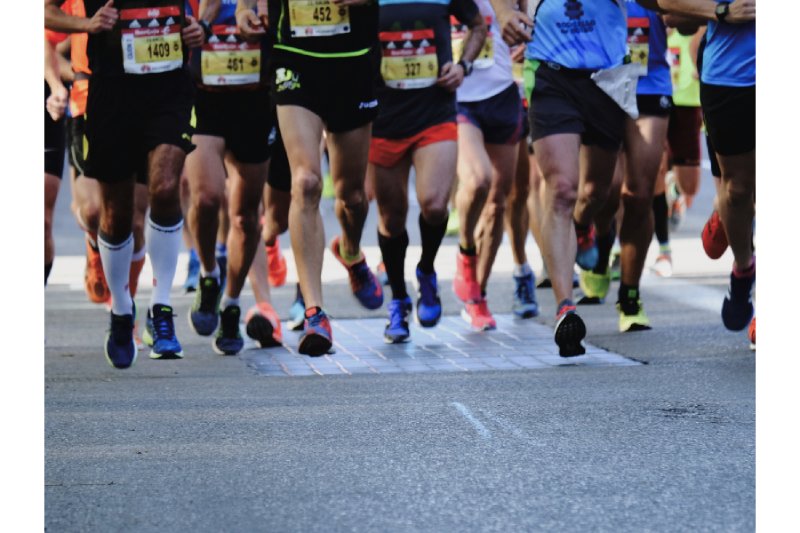Sports
Daniel Kamensky On The Mental Toughness to Compete in Triathlons

Triathlons are complex physical challenges. They require athletes to transition between swimming, cycling and running over a considerable distance. An Olympic-distance triathlon is a 0.93-mile swim, 24.8-mile bike ride, and 6.2-mile run, a physical challenge for any athlete. Triathlons are an even more significant mental challenge. Winning competitors succeed because of their mental toughness, says Daniel Kamensky, a triathlon athlete.
What is Mental Toughness?
Mental toughness is really a measure of resilience. Someone who is mentally tough keeps striving, pushing through challenges, such as a weary body, to achieve their goals. They take whatever happens in stride and are confident they can overcome any challenge. A mentally tough athlete remains determined and focused under pressure.
Mental Toughness and Triathlons
During a triathlon, athletes pressure themselves and may experience anxiety and lack of confidence for fear of failing to complete the race or meet their own personal performance goals. Their body signals its limits, but their mind must push the body beyond its limits. The athlete must develop mental toughness to conquer their emotions and focus on the race to finish well, Kamensky says.
Developing Mental Toughness
An athlete can develop the necessary mental toughness by establishing a plan and sticking to it, Kamensky says.
Killer Training Sessions
The first task is to pick a coach or training plan. Kamensky picked experienced triathlon coach Nick Castellano. Castellano works hard to build mental toughness in his athletes. One way was through training sessions where he threw every possible obstacle before his clients. Tortuous workouts that might last for seven hours or shorter workouts that require you to run, cycle, or swim at a faster-than-race pace. These exercises forced his clients to test their limits before race day and be ready for any challenge. While training for a triathlon, athletes must constantly ask themselves, “Am I giving 100 percent here?” or “Can I give more?” says Kamensky.
Focus On What You Can Control
Often, athletes waste too much energy focusing on how others are performing in the race or even how the weather is impacting conditions. Instead, athletes should hone their focus on what they can control. For example, they can control their speed but not how fast their fellow athletes are going. They should also focus only on the present moment and getting through what is right in front of themselves, not what lies ahead or whatever happened in the past. By limiting their focus to the here and now, they will have enough mental strength to finish the race, says Kamensky.
Take Things One Segment at a Time
Kamensky says you can quickly feel overwhelmed if you focus too much on how much further you have to go in the triathlon or a bump in the road. If you’re prepared you can overcome even the unexpected challenge. Kamensky suffered an injury midway through his first triathlon when he fell hard on his knee when trying to navigate a chaotic bike transition area. But his training had taught him he could overcome the obstacle and push ahead to finish the race.
Kamensky urges athletes to focus on doing their best in each segment. Suddenly, you’re halfway done or almost to the finish line. Once you’re in the home stretch, you know you’ll finish, he says.
About Daniel Kamensky
Daniel Kamensky is an Attorney and founder of Restructuring Law Advisory. He also founded the non-profit Creditor Rights Coalition which provides curated and original content to over 2,000 member subscribers.. He has significant experience in legal financial issues and a law degree from Georgetown University. He has completed more than 15 triathlons.
-
Health3 weeks ago
Back to Roots: Ayurveda Offers Natural Cure for Common Hair Woes
-

 Tech3 weeks ago
Tech3 weeks agoFrom Soil to Silicon: The Rise of Agriculture AI and Drone Innovations in 2025
-

 Science7 days ago
Science7 days agoJuly Full Moon 2025: Everything You Should Need to Know, When and Where to See Buck Moon
-

 Sports3 weeks ago
Sports3 weeks agoFIBA 3×3 World Cup 2025: Full Schedule, Preview, and How to Watch
-

 Gadget4 weeks ago
Gadget4 weeks agoThings to Know about Samsung Galaxy S26: What’s New and What’s Next
-

 Tech4 weeks ago
Tech4 weeks agoAdobe Firefly App Now Available on iOS and Android Phones to Create AI Images and Videos Anywhere
-

 Sports2 weeks ago
Sports2 weeks agoPrefontaine Classic 2025: Full Schedule, Preview, Field, Events and How to Watch Diamond League Eugene Live
-

 Festivals & Events3 weeks ago
Festivals & Events3 weeks agoEverything You Should Need to Know about Summer Solstice 2025













